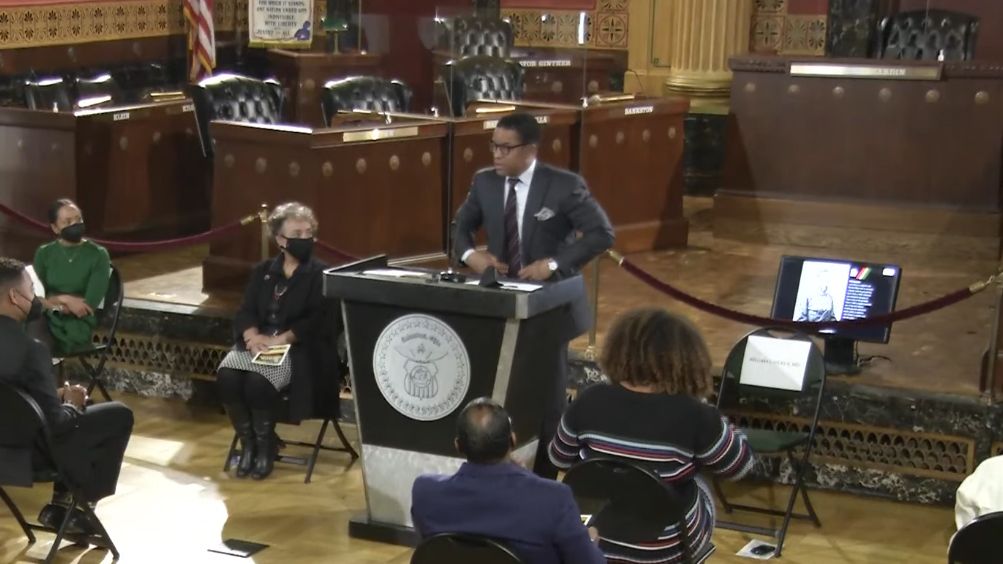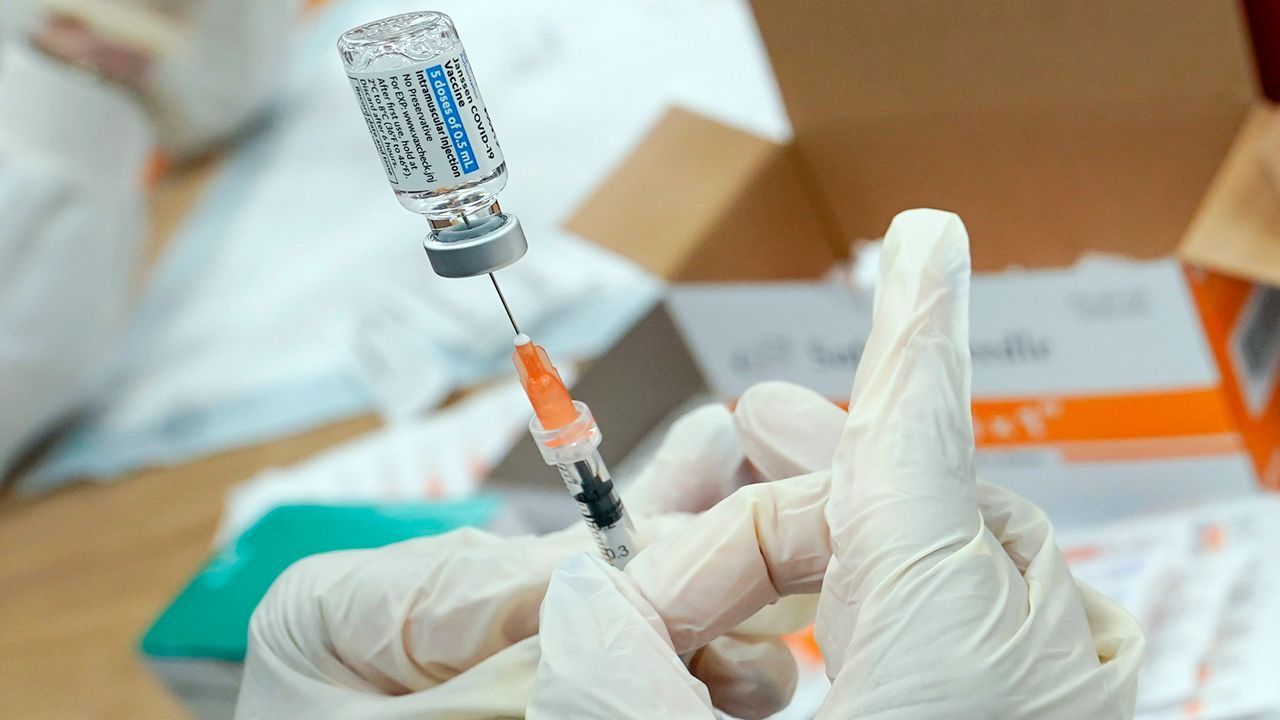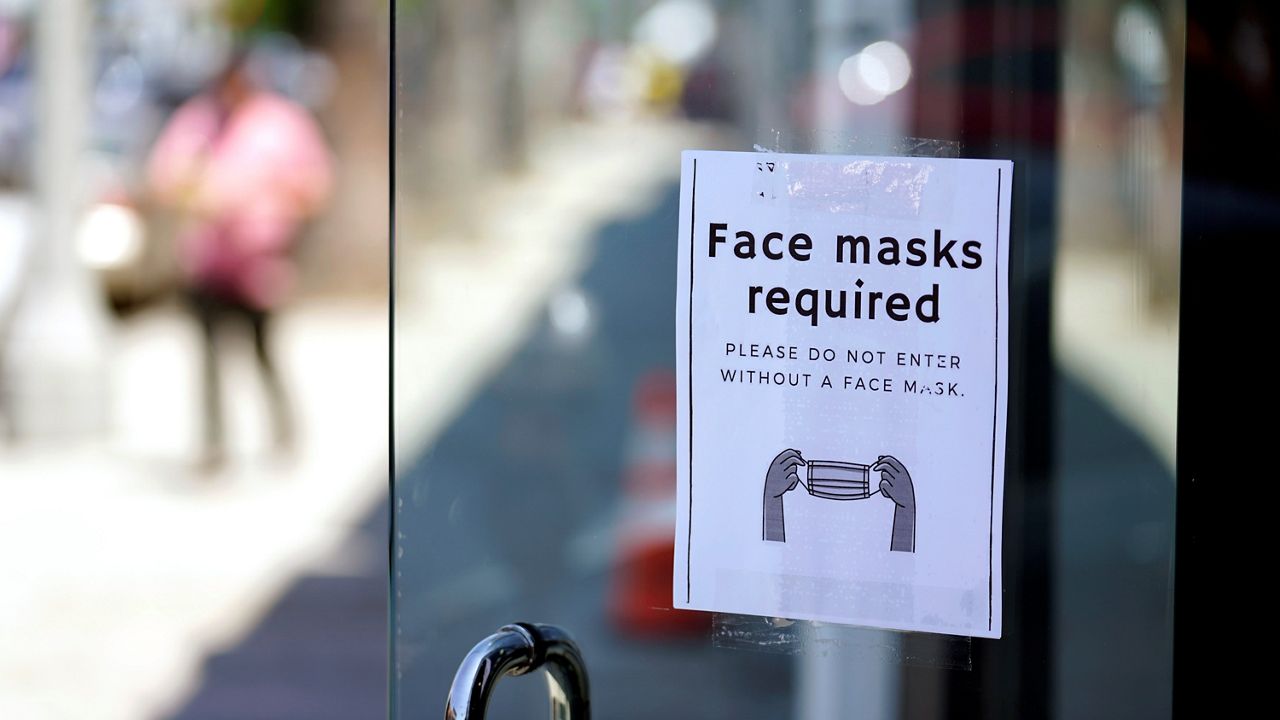
COLUMBUS, Ohio — A Columbus City Council Black History Month Celebration Friday featured reflections on the pain of the pandemic for Black residents and honored health professionals who have stepped up to improve health equity.
What You Need To Know
- Five Black health leaders were recognized with an award for their efforts to improve health equality
- City Council's Black History Month celebration addressed health inequities in the city
- Columbus Health Commissioner Dr. Mysheika Roberts gave remarks as she accepted an award
Dr. William J. Hicks II, vascular neurologist at OhioHealth Riverside, delivered a keynote address, discussing the grave disparities in health in Columbus.
“Your zip code can have a 20-year difference on your mortality, and I'm talking about in this town,” he said.
Speaking before five honorees were recognized with Poindexter Awards for their efforts to improve the quality of life for Black Columbus residents, Hicks said the city needs to address a range of problems, including environmental issues impacting Black communities, housing security instability, food deserts and the lack of diversity in medicine.
Hicks said the honorees receiving the award, which is named after the first Black member of Columbus City Council the Rev. James Preston Poindexter, represent the past, present and future of Black health in Columbus and together show a “beautiful” trajectory of leadership and progress, even though there’s tough work still to be done in the city. Hicks’ father, Ohio State oncologist Dr. William J. Hicks, who is at the tailend of a 48-year career in the medical field, was recognized Friday.
Columbus Public Health Commissioner Dr. Mysheika Roberts, another one of the honorees, said that as a Lakers fan she was inspired to pursue a career in public health when she was in college and Magic Johnson announced he was HIV positive.
“To hear him say that he had HIV was huge for me as a collegiate, as an African American, and this was back in the day when we didn't know very much about HIV and how it was transmitted, and for him to say that and to look so healthy, that was really a defining moment for me. At that point in time, I decided I wanted to do public health,” Roberts said. “I had no idea that there were so few African Americans in leadership in public health at that time.”
Roberts shared another defining moment of her tenure as the first Black health commissioner in Columbus, which came in the early days of the pandemic. Roberts said a gut feeling hit her that the Arnold Sports Classic, a marquee event for the city, should not go forward, due to the emergent virus.
After she called the mayor and then Ohio Health Director Dr. Amy Acton with her concerns, Roberts got a text to report immediately to the governor’s office.
“I showed up in the governor's office, and I walked into a room that was full of Caucasian men, and everyone was looking at me, and I had to explain to them why I thought the Arnold should be changed, adjusted or canceled. That was an intimidating moment to say the least, but I followed my gut, and I followed the science,” she said.
Awardee Dr. Laura Espy-Bell, an OhioHealth ER physician, who is involved with a number of health diversity and inclusion initiatives, stressed the importance of pipelines for Black students to pursue careers in medicine.
“Approximately 5% of all physicians in this country are African American and only 2% of those physicians are African American women,” said Espy-Bell, who was also recognized for spearheading an advocacy campaign of Black doctors promoting the COVID-19 vaccines.
Columbus City Council President Shannon Hardin said he is proud that Black Columbus residents are now more vaccinated than white residents, thanks in part to the work of the honorees.
“That was not an easy task when there was so much distrust, and rightfully so, for our past histories around medicine and how it has been used,” he said.
Hardin said the past two years have been particularly difficult and traumatic for Black Columbus residents, with data showing that Black hospitalization rates are disproportionately high.
Friday's event honored Dr. Jefferson Alfred Blair, who was an OBGYN in Columbus for more than 45 years and died in 2011. Jefferson was the first African American accepted to Ohio State’s medical internship program. Hicks said it’s important to honor trailblazers, like him, given the continued lack of representation in medical careers.
The event also honored Charleta Tavares, CEO of PrimaryOne Health, a system of community health centers.
Tavares said the vision in her career has been to eliminate inequities in health care.
“We know that we get better health outcomes when people see people that look like them, or that are culturally appropriate in the care that they share,” she said.








